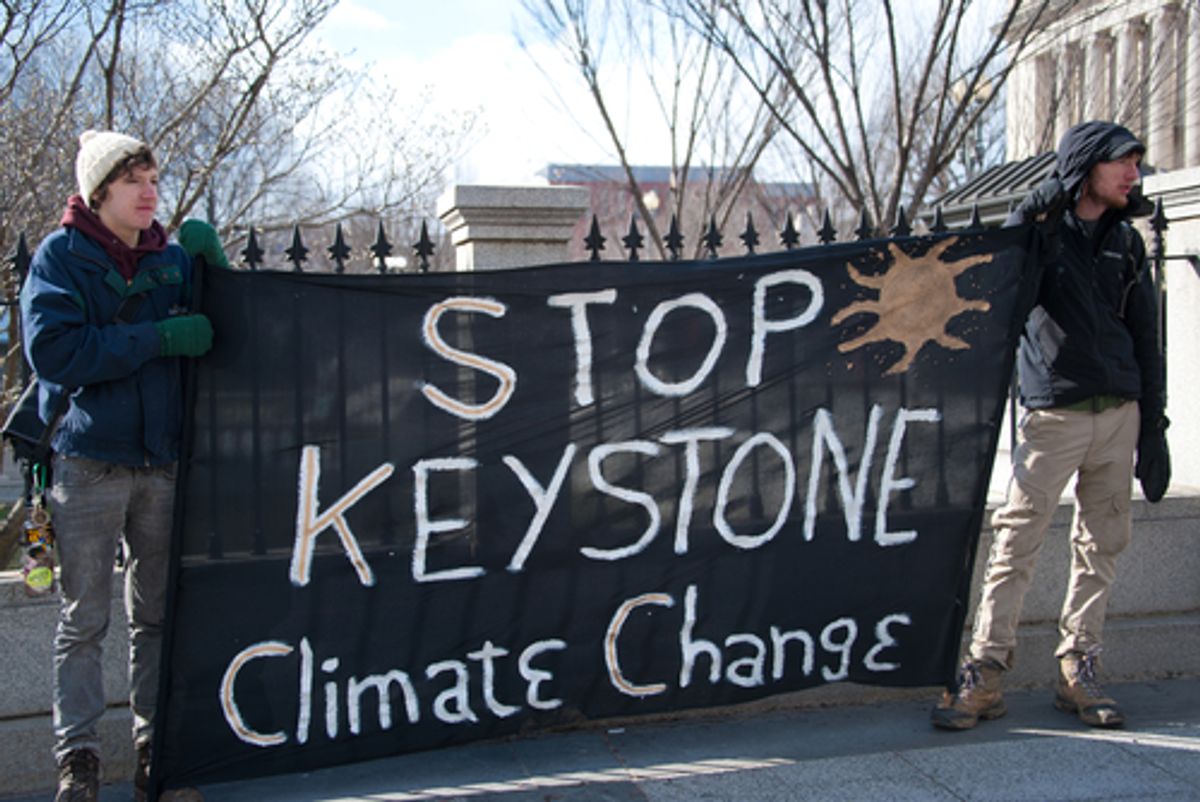As Salon noted earlier this month, following the release of the State Department’s Environmental Impact Statement, which greenlighted the controversial Keystone XL Pipeline, it emerged that the report’s authors were outside contractors with oil industry ties. The contractor that produced the bulk of the report was Environmental Resources Management, DeSmog Blog reported, which had ties to tar sands extraction companies. On Tuesday, DeSmog Blog's Steve Horn added yet another layer of discreditation to the Environmental Impact Statement -- namely that ERM has a terrible track record when it comes to greenlighting pipeline projects.
ERM also authored a report that argued that the 2002 BP Caspian pipeline was environmentally and economically sound -- as the firm has also determined with the Keystone XL project. Horn notes that the predictions about the Caspian pipeline were dramatically wrong -- the project failed to deliver on jobs and the pipeline has been the site of explosions and oil spills. Via DeSmog Blog:
Almost 11 years ago in June 2002, Environmental Resources Management (ERM) Group declared the controversial 1,300 mile-long Baku–Tbilisi–Ceyhan (BTC) Pipeline environmentally and socio-economically sound, a tube which brings oil and gas produced in the Caspian Sea to the export market.
... Like today's KXL proposal - which would only create 35 full-time jobs - the false promise of thousands of jobs also served as the dominant discourse for BTC Pipeline proponents. The reality, like KXL, was more dim. The Christian Science Monitor pointed out in 2005 that only 100 people were hired full-time in Georgia, the second destination for BTC.
The most prominent blowout, subject to a mainstream media blackout, was the 2008 BP Caspian Sea oil platform explosion that preceded the infamous 2010 BP oil disaster in the Gulf of Mexico. BP, to this day has never admitted it was an explosion - describing it simply as "a gas leak" - but its plausible deniability cover was blown in the form of a Wikileaks cable discussing the matter, and via whistleblowers who contacted investigative reporter Greg Palast.



Shares